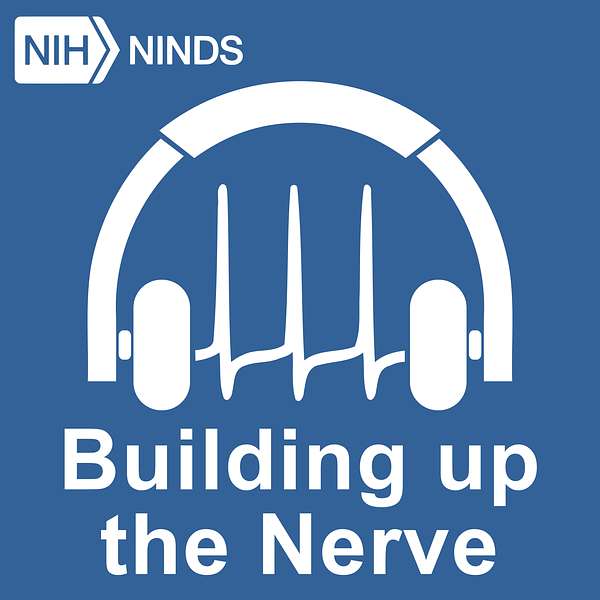
NINDS's Building Up the Nerve
Season 5 of the National Institute of Neurological Disorders and Stroke’s Building Up the Nerve podcast helps you strengthen your science communication skills with tools and advice to use throughout your career. We know that navigating your career can be daunting, but we're here to help—it's our job!
NINDS's Building Up the Nerve
Season 3 Trailer
Welcome to Season Three of the National Institute of Neurological Disorders and Stroke's Building Up the Nerve, where we help you strengthen your mentoring relationships with tools and advice from both trainees and faculty. We know that navigating your career can be daunting, but we're here to help. It's our job.
Transcript available at https://ninds.buzzsprout.com/
On Season Three of Building Up The Nerve, we're talking all things mentorship. This season is for both mentors and mentees to learn about different aspects of mentoring, from building a relationship, working through difficulties, becoming a mentor and even ways we can systematically build our programs to allow good mentorship to thrive.
Marguerite Matthews:As in previous seasons, the goal is to help you learn from your peers, colleagues, and experts to enable you to foster the best mentoring relationships possible. We want you to have all the information you need to succeed. I'm Marguerite Matthews, a program director at NINDS.
Lauren Ullrich:And I'm Lauren Ullrich a program director at NINDS. And we're the hosts of Building Up The Nerve, where we help you strengthen your mentoring relationships with tools and advice from both trainees and faculty. We know that navigating your career can be daunting, but we're here to help. It's our job. Here's a preview of what you can look forward to this season.
Theanne Griffith:Everyone in a mentee mentor relationship is human. And if mistakes are made it's important that hopefully there's a certain base level of trust where feedback can be given and being able to understand that it's all about growth and communication I think can make for really positive mentor mentee relationships.
Corey Welch:I was the only Native American in every grad program I've been in. But I made sure that I found other Natives to hang out with. And when I was thinking about quitting my PhD, that was what kind of kept me supported in ways that I wasn't sure I knew how to ask for within my existing cohort, within my PI relationship and my grad committee.
Claire Horner-Devine:So here you are in this messy world in a complicated landscape that perhaps was not made by people that are anything like you, or was not made with your success in mind and you are here. You're deserving. So ask for what you want and what you need until you find that you can get access to it.
Ismail Ahmed:It's important to self-reflect and say, am I willing to put myself through this uncomfortable situation even if it takes me a little bit longer, it's better to cut my losses and be in a better situation. And I think that that is a big step towards independent thinking where you decide for yourself that this is what I need to do for me. And it will yield better results.
Kaela Singleton:The biggest thing that I look for and think about with mentorship is the opportunity for growth. That's a really special thing about science and STEM is that your mentors are around for a while and they get to see you sort of blossom and watch all of your dreams come true. And I, I think that that's something that we kind of take for granted a lot of the time.
Marguerite Matthews:Season three debuts April 22nd, 2022. Be sure to subscribe to the podcast on apple podcasts or your favorite podcast app so you won't miss an episode.